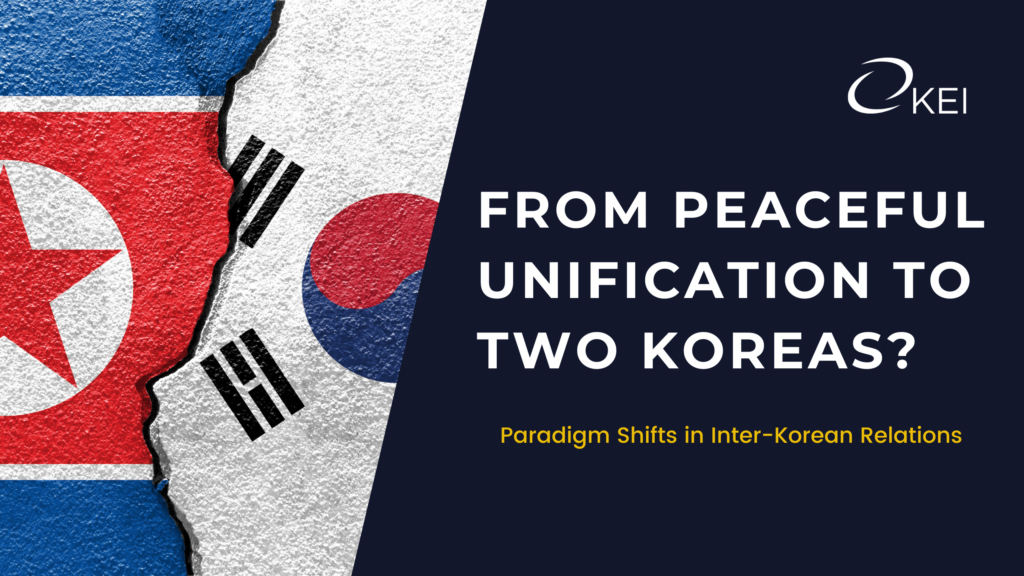For decades, inter-Korean relations have oscillated between confrontation and cautious engagement, grounded in a shared yet contested aspiration of eventual peaceful unification. This aspiration, rooted in nationalist ideals and constitutional mandates on both sides of the border, has shaped the political lexicon and security posture of both Seoul and Pyongyang. Yet, developments over the past year suggest that North Korea under Kim Jong Un is abandoning the peaceful reunification paradigm altogether. At the turn of 2024, North Korea publicly reframed South Korea not as a compatriot regime but as a separate and hostile state. This pivot marks a potentially irreversible rupture in inter-Korean relations—one with consequences not only for the Korean Peninsula but also for regional geopolitics.
Please join KEI for a discussion on Chris Green’s upcoming article for KEI’s Korea Policy journal that explores three interrelated dimensions of North Korea’s transformative policy turn and its implications for inter-Korean dynamics and the broader security environment in Northeast Asia.

